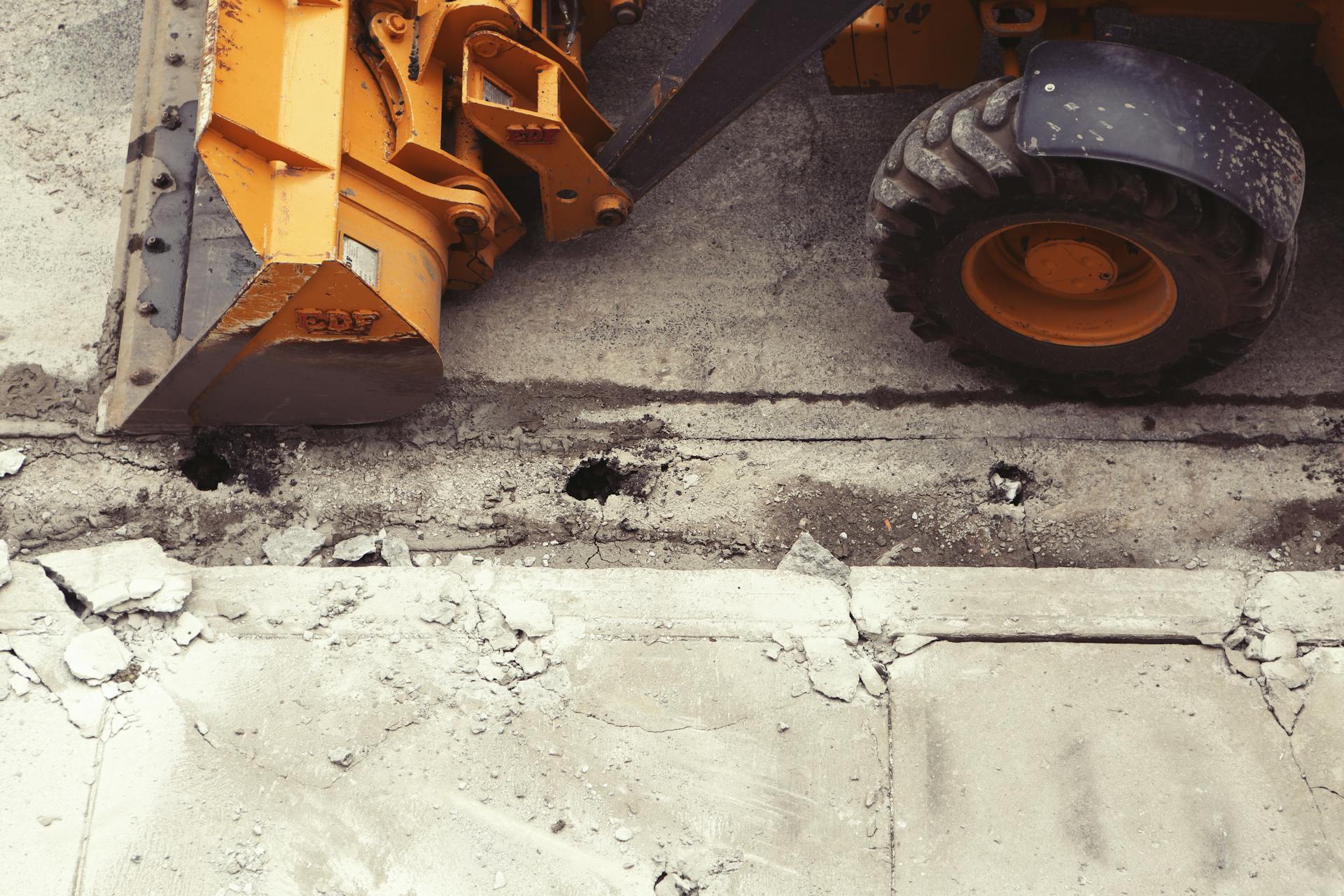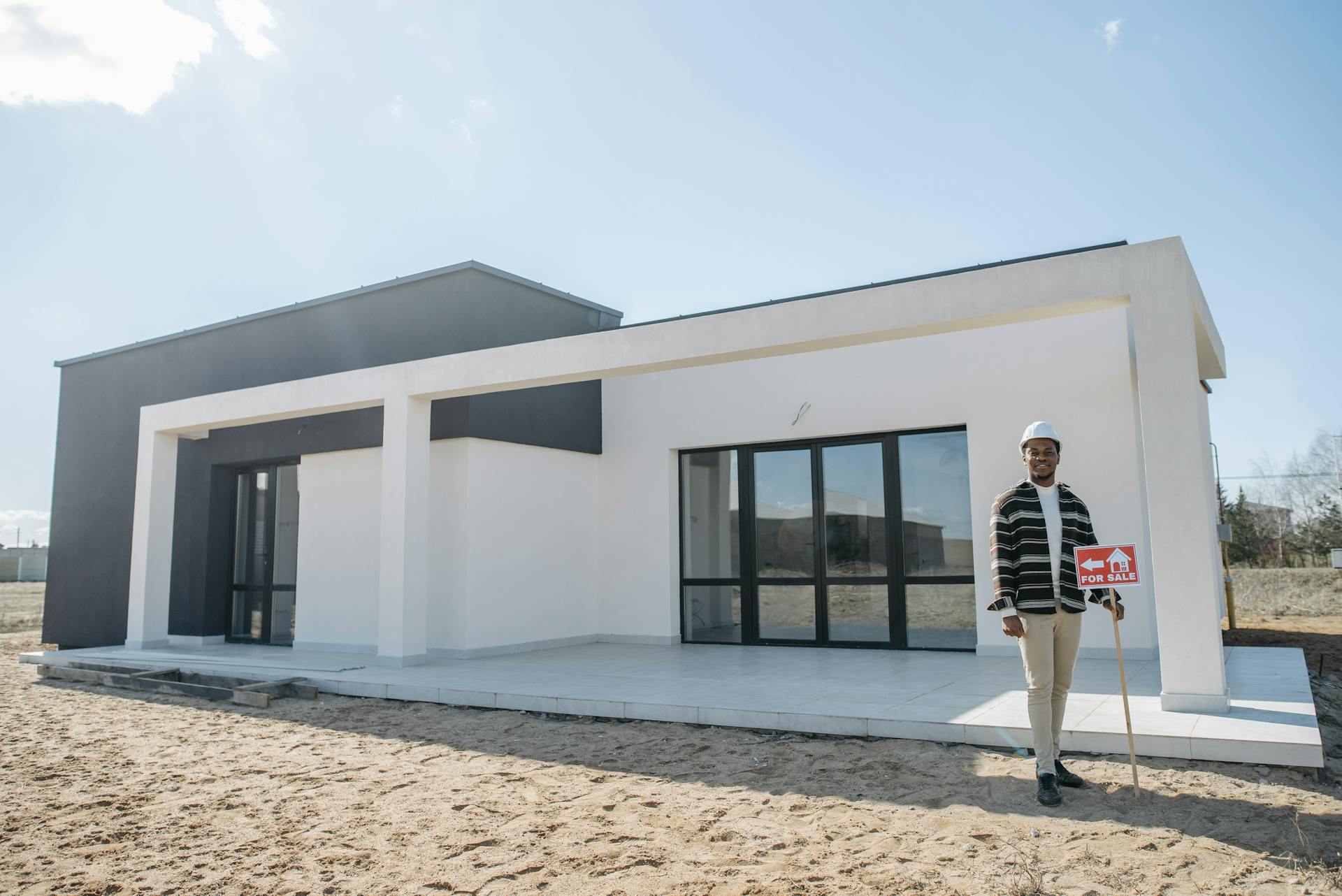
To qualify for an SBA loan, you'll need to meet the personal property collateral requirements. The SBA considers personal property collateral that's used in the business to be eligible for loan collateral.
The SBA allows businesses to use a wide range of personal property as collateral, including equipment, inventory, and even vehicles. This can include assets like computers, machinery, and even furniture.
Businesses can also use intangible assets like accounts receivable and contract rights as collateral. These assets are often considered high-risk, so the SBA may require additional collateral or a higher down payment.
The SBA will typically value personal property collateral at its current market value, which may be less than its original purchase price.
SBA Loan Basics
SBA loans don't always require collateral, but it can boost your application's chances of being accepted if you match 100% of your target loan amount with collateral.
Most SBA loans do require some type of collateral, but the Small Business Administration won't turn down an application if collateral is the only factor missing and the rest of the application is strong.
For SBA 7(a) loans of $50,000 or less, lenders don't have to request any collateral. This can be a relief for small business owners who may not have a lot of assets to offer.
Lenders must use their standard collateral policies for similarly sized, non-SBA loans to determine how much collateral is necessary for SBA 7(a) loans over $50,000. This can vary depending on the lender and the loan amount.
All SBA loans require a personal guarantee from owners with 20% or more equity in the company. This means that if the business defaults on the loan, the owner's personal assets could be at risk.
Consider reading: Sba 7 a Loan Period
Collateral and Requirements
Collateral requirements vary depending on the loan amount and type of SBA loan. For example, loans up to $25,000 are unsecured and require no collateral.
To determine the required collateral, lenders consider factors like your credit score, the amount you want to borrow, and the types of assets you have. Matching 100% of your target loan amount in collateral can boost your application's chances of being accepted.
For SBA 7(a) loans, the collateral requirements change depending on the loan amount. For loans between $25,000 and $350,000, lenders follow collateral policies for similarly-sized non-SBA-guaranteed commercial loans. For loans larger than $350,000, the borrower must provide the maximum amount of collateral possible to fully secure the loan.
Here's a breakdown of SBA 7(a) loan collateral requirements:
It's worth noting that the SBA guarantees a portion of the loan, but it's still up to the lender to determine collateral requirements.
Notable Variations
7(a) Small Loans and SBA Express loans offer different guarantee percentages for loan amounts over $150,000.
The SBA will only guarantee up to 50% of the loan amount for Express Loans, which is significantly lower than the guarantee for 7(a) Small Loans.
For loans up to $150,000, the SBA guarantees 85% of the loan amount, giving borrowers more assurance.
Loans greater than $150,000 have a lower guarantee of 75%, which may affect the borrower's ability to secure a loan.
Discover more: Sba Express Loan Application
EIDL Requirements
The EIDL program has different collateral requirements than other SBA loans, and it's essential to understand these requirements to ensure a smooth application process.
Loans made through the EIDL program under $25,000 are still unsecured, meaning you don't need to provide any collateral.
If you're applying for a loan over $25,000, you'll need to provide some form of collateral, but don't worry if you don't have a lot of collateral value - the EIDL program is designed to help businesses in need.
The program will consider the collateral you have available, so even if it's not a lot, it can still be sufficient.
Businesses applying for a loan amount greater than $25,000 must also consent to a UCC-1 lien being placed on their business.
If you're applying for a loan of more than $200,000, you'll need to provide a personal guarantee from each person with a 20% or more stake in the business.
Worth a look: Sba 7a Loan Collateral Requirements
Requirements
To get an SBA loan, you'll need to provide collateral, but the amount and type of collateral required depend on the lender, your credit score, and the loan amount.
Matching 100% of your target loan amount in collateral can boost your application's chances of being accepted.
Loans up to $25,000 are often unsecured and require no collateral, but loans between $25,000 and $350,000 must follow collateral policies for similarly-sized non-SBA-guaranteed commercial loans.
The SBA guarantees a portion of the loan provided by an approved lender, reducing the lender's risk and making it easier for small businesses to access funding.
Here are the specific collateral requirements for SBA 7(a) loans:
If you're applying for an EIDL loan, the collateral requirements are slightly different, especially for loans over $25,000.
Personal Property and Guarantees
Personal property and guarantees play a crucial role in SBA loan collateral. All SBA loans require a personal guarantee from every owner with a 20 percent or greater equity stake in the business, as well as from key executives or other senior-level managers.
A personal guarantee is a legally binding document that acknowledges the business owners or executives are personally responsible for repaying the loan. This can put their personal assets, such as real estate or savings, at risk if the business cannot meet the loan's repayment obligations.
The type and amount of collateral may vary depending on the specific SBA loan program and lender. Some acceptable forms of collateral include commercial real estate or land, machinery and equipment, inventory, accounts receivable, and cash savings or deposits.
Business owners should be aware that personal guarantees involve a level of risk, but they also come with a significant reward – access to reliable financing from a trusted lender.
Common Misconceptions and Requirements
Business owners often assume that they need to have ample assets to qualify for an SBA loan with collateral, but this isn't entirely accurate. The SBA has specific guidelines for collateral requirements, and lenders have flexibility when determining what assets to accept.
Lenders are looking for proof that business borrowers have some "skin in the game", which can take many forms, including business assets, accounts receivable, or even personal assets. SBA loan collateral may not be as restrictive as you think.
You might like: Online Loans Private Lenders
Here are some common misconceptions about SBA loan collateral requirements:
- Physical assets like real estate or equipment are the only acceptable forms of collateral.
- The SBA provides the loan or collateral for SBA loans.
- The SBA guarantees the loan, but it's still up to the lender to determine collateral requirements.
In reality, the SBA guarantees a portion of the loan provided by an approved lender, reducing the lender's risk and making it easier for small businesses to access funding.
Common Misconceptions
Many business owners assume they won't qualify for an SBA loan without ample assets for collateral, but this isn't entirely accurate.
All SBA loans require some form of collateral from the borrower, as lenders want to ensure the borrower has "skin in the game."
SBA loan collateral can take many forms, including business assets such as real estate or equipment, accounts receivable or inventory, and personal assets of the business owner.
The type and total value of collateral required can vary depending on the breakdown of equity in the company held by each owner or previous lender.
Here are some common forms of SBA loan collateral:
- Business assets such as real estate or equipment
- Accounts receivable or inventory
- Personal assets of the business owner
Common Misconceptions About Requirements
Many business owners assume that SBA loans require a lot of collateral, but that's not always the case. In fact, the SBA loan collateral requirements can be more flexible than you think.
You don't need to have ample assets to qualify for an SBA loan. All SBA loans require some form of collateral, but lenders make final determinations on a case-by-case basis. They're looking for proof that you have some "skin in the game".
Business owners often believe that only physical assets like real estate or equipment can be used as collateral. But that's not true - lenders may also consider other assets such as accounts receivable or inventory.
Here are some common misconceptions about SBA loan collateral requirements:
- Only physical assets (like real estate or equipment) can be used as collateral.
- The SBA provides the loan and collateral.
- Business owners don't need to provide any collateral for an SBA loan.
In reality, the SBA guarantees a portion of the loan provided by an approved lender, reducing the lender's risk and making it easier for small businesses to access funding. This means that lenders must follow specific guidelines when determining collateral requirements.
Frequently Asked Questions
Can you use property as collateral for a personal loan?
Yes, you can use property as collateral for a personal loan, but it's essential to understand the lender's requirements and potential risks involved. Check our loan options to learn more about secured personal loans and how property collateral works.
How do I remove an SBA lien from my personal property?
To remove an SBA lien from your personal property, gather documentation and evidence to demonstrate your equity and willingness to settle the debt. A well-prepared case can help you negotiate a fair settlement with the SBA.
Sources
- https://www.nerdwallet.com/article/small-business/small-business-loans-collateral-lien-personal-guarantee
- https://firstbusiness.bank/resource-center/collateral-requirements-sba-loans/
- https://www.lendio.com/blog/sba-loan-collateral-requirements/
- https://kapitus.com/blog/manage-your-money/financing/what-are-sba-loan-collateral-requirements/
- https://www.tmcfinancing.com/what-are-sba-504-loan-collateral-requirements/
Featured Images: pexels.com


